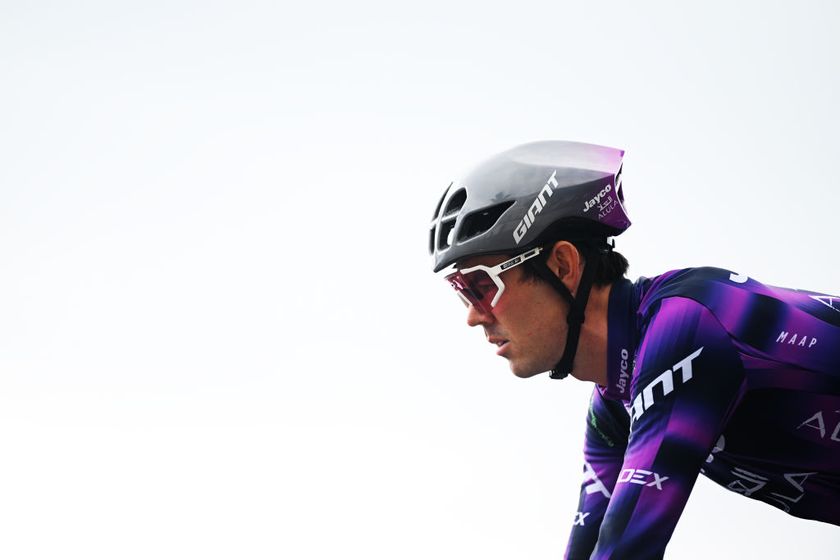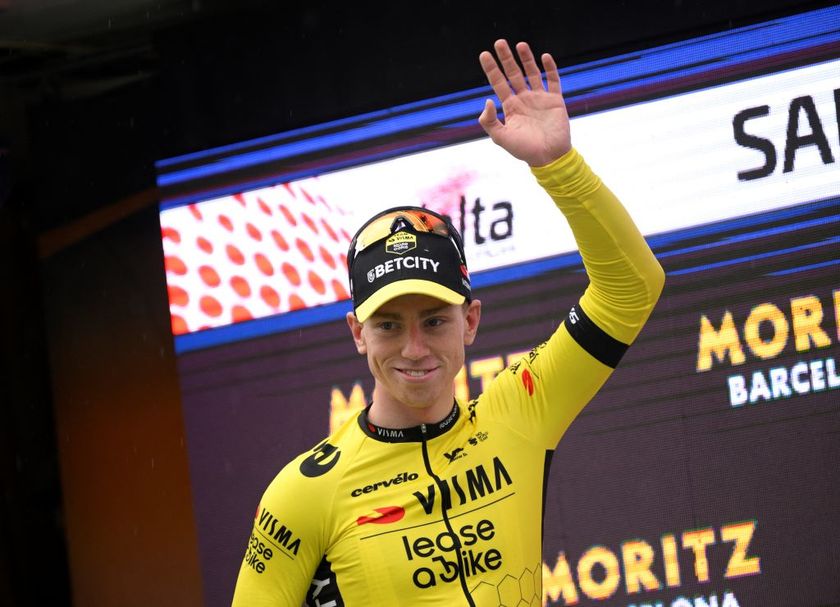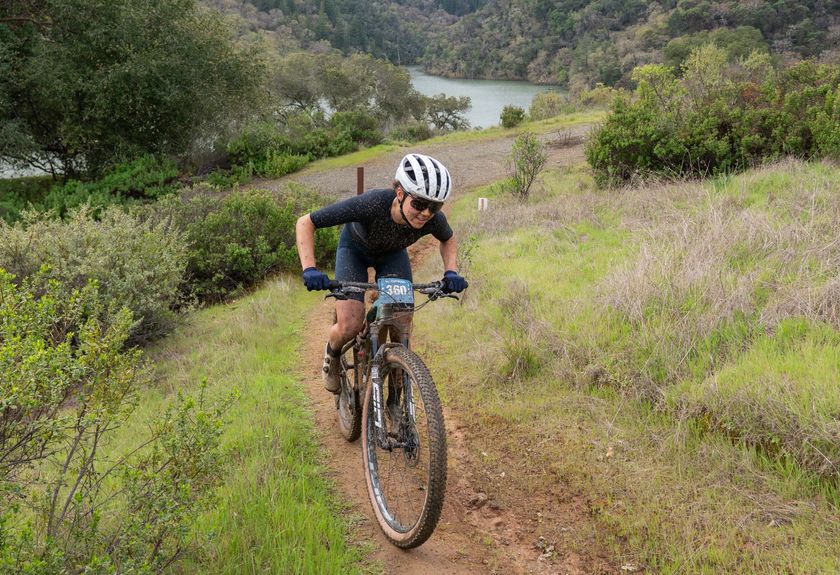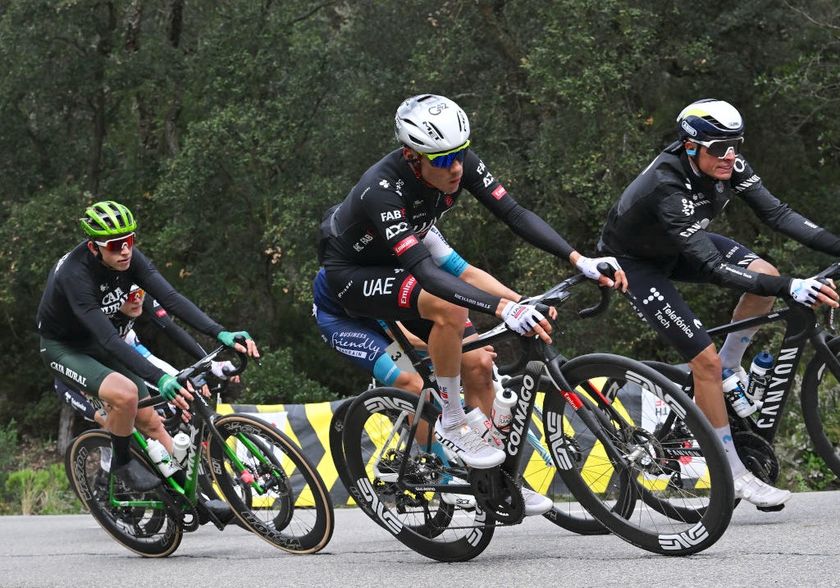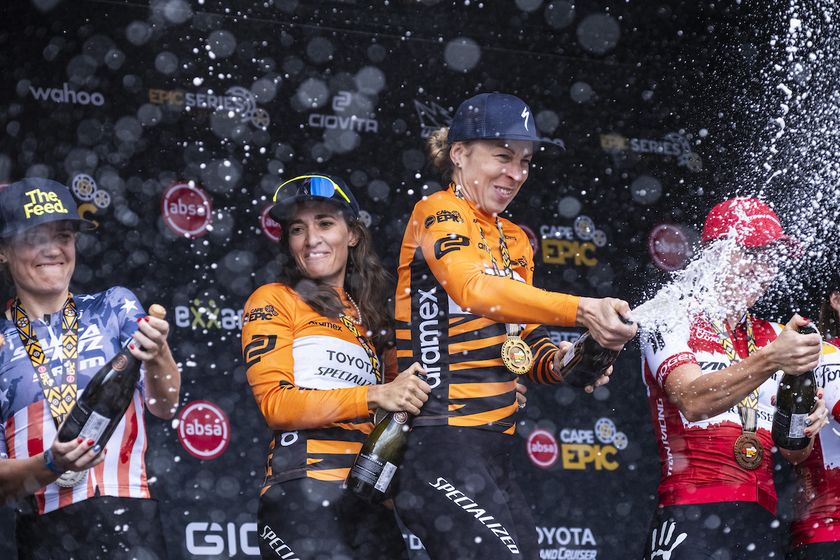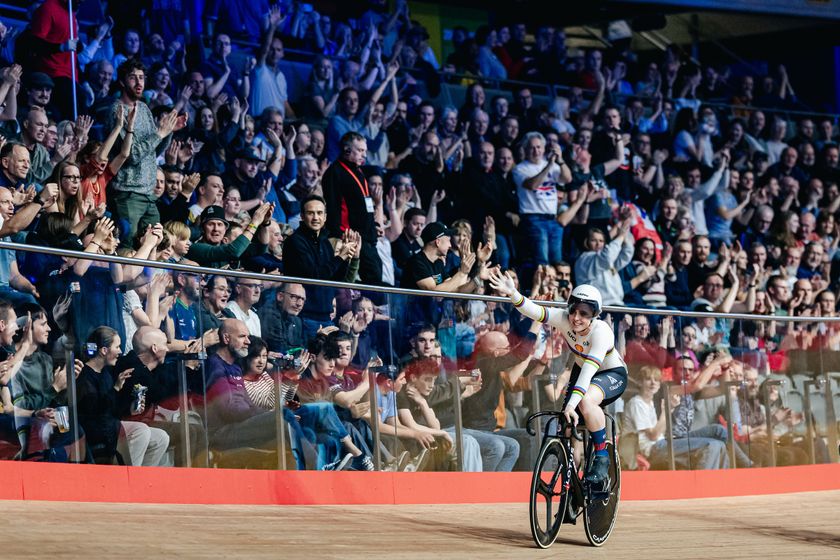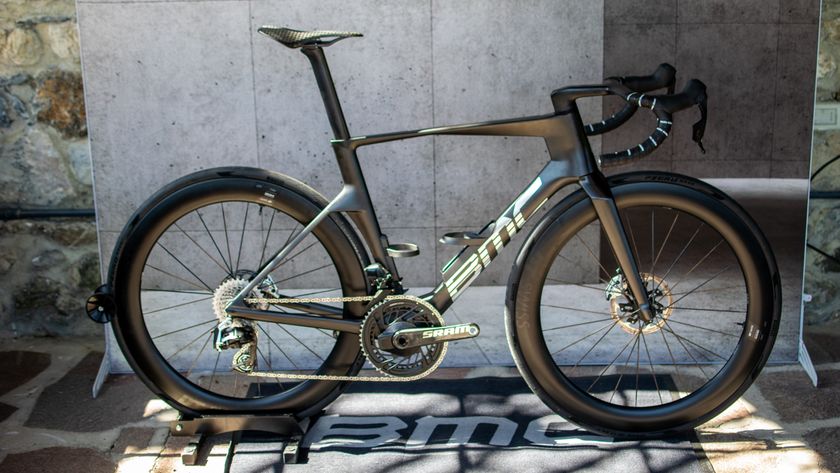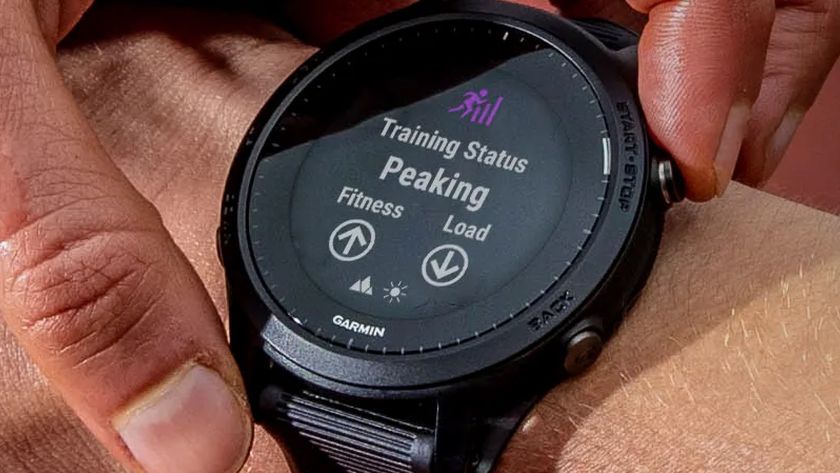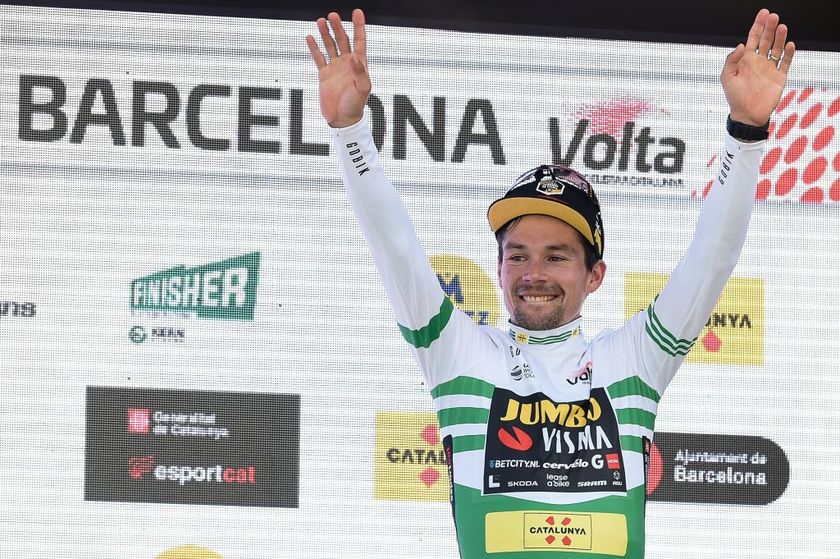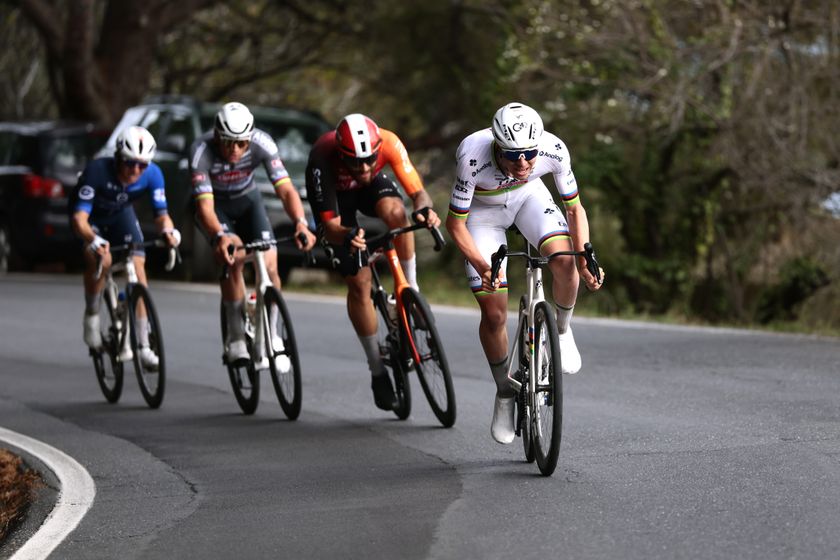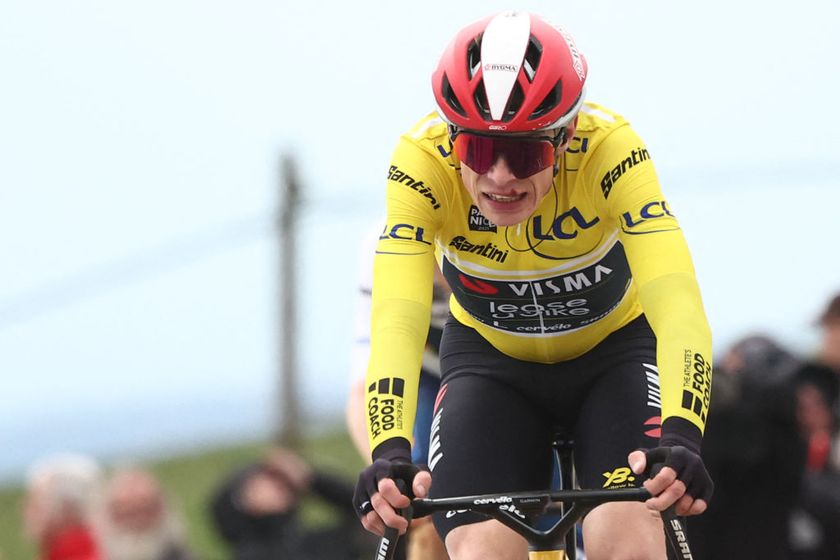'Nothing is lost yet, no drama' – Remco Evenepoel absorbs Tour de Suisse setback
Belgian attacks but loses ground to Skjelmose on stage 3 summit finish
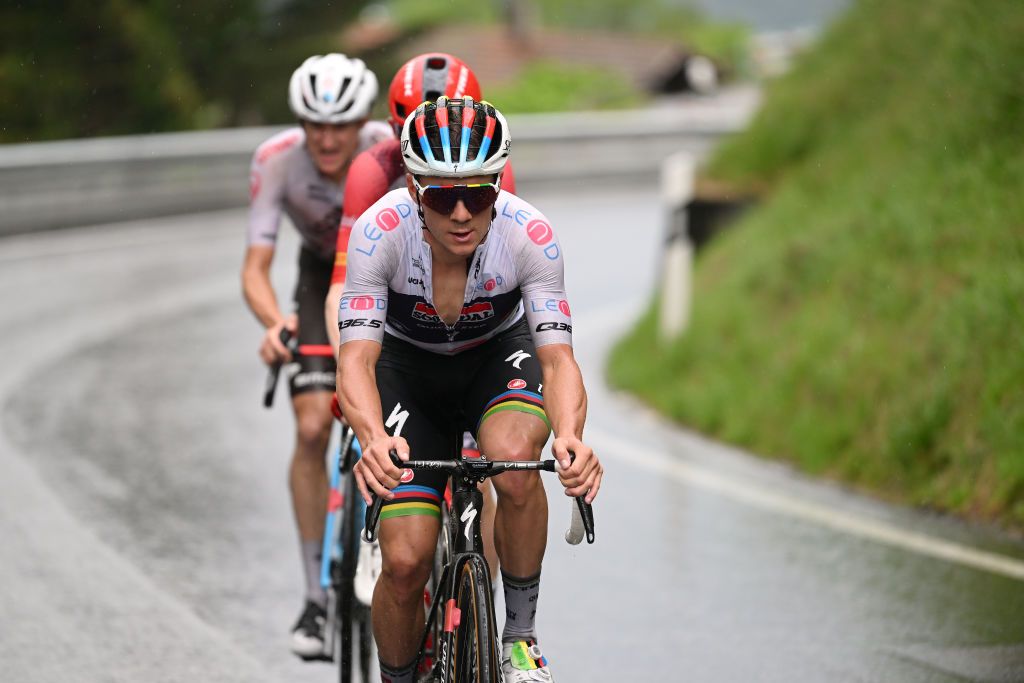
At first, it looked set to be another Remco Evenepoel exhibition. When the world champion attacked with 6km of the climb to Villars-sur-Ollon remaining, he seemed destined to put his stamp on the Tour de Suisse.
By the summit, however, Evenepoel would find himself in damage limitation mode after he surprisingly struggled on the upper reaches of the summit finish to stage 3. He would recover slightly in the final kilometre to place fourth on the stage, 21 seconds behind winner Mattias Skjelmose (Trek-Segafredo).
“We have to be content, we tried,” Evenepoel said afterwards, according to Het Nieuwsblad. “Nothing is lost yet, so no drama. I haven’t lost the general classification here. Now it’s onto tomorrow, it’s another chance.”
On a day of steady rain, Evenepoel had set his Soudal-QuickStep team to work on the lower slopes of the final climb, with Mattia Cattaneo and James Knox bringing him to within 6km of the finish.
Only Mattias Skjelmose (Trek-Segafredo) and Felix Gall (AG2R Citroën) could follow Evenepoel’s initial acceleration, which splintered the yellow jersey group and distanced race leader Stefan Küng (Groupama-FDJ). It was striking, however, that the best of the chasers were able to keep Evenepoel within touching distance after his initial onslaught.
After sitting on Evenepoel at first, Gall and Skjelmose felt emboldened by what they saw. When Gall attacked with 3km to go, Skjelmose followed immediately, while Evenepoel was left to chase alone, and he was later caught and passed by chaser Juan Ayuso (UAE Team Emirates).
“I had to try something to get rid of Küng, which I did,” Evenepoel said. “However, there were two riders with me who were also very strong, and maybe I took a little too much work on my shoulders. I paid for that on the tricky part of the climb.”
Get The Leadout Newsletter
The latest race content, interviews, features, reviews and expert buying guides, direct to your inbox!
Evenepoel suggested the day had confirmed he was still short of his best after COVID-19 had forced him to abandon the Giro d’Italia last month while wearing the maglia rosa.
“I felt it wasn't in top form yet. Normally I should be able to add another acceleration in that stretch, but that wasn’t on the cards today,” said Evenepoel, who drew solace from his recovery in the final kilometre.
“I didn't completely collapse either. It was only two or three bad minutes, and then I got back into my rhythm, so it must be some after-effects [from COVID-19.] But it was still a good sprint in the end.”
Evenepoel acknowledged, too, that he had taken the weight of the race on his shoulders from further out than was advisable, and he suggested that he would race more cautiously in the days ahead.
He remains second on GC, albeit 17 seconds behind the new leader Skjelmose, who had identified as a dangerman at the start of the day. Another obvious threat comes from Ayuso, who is now third, just 7 seconds behind Evenepoel. Sunday’s final time trial, however, remains something of a trump card for Evenepoel in the race for overall victory.
“Maybe I went a little too early, but my teammates were empty, so I had to go when I did,” Evenepoel said. “Normally, I would go two or three times to ride them off my wheel, but that's not on the cards yet.
“Maybe it wasn't the smartest thing to keep riding, so tomorrow, I'll possibly sit on the wheels a bit more and leave the initiative to others.”
Although Tuesday’s finale was the lone summit finish of the Tour de Suisse, the toughest days of the Tour de Suisse are still to come, beginning with stage 4, which sees the peloton take in the category 1 ascents of Crans-Montana and Dorben ahead of the finish in Leukerbad.
“The climbs are even longer tomorrow, and those are different efforts,” said Evenepoel.

Barry Ryan was Head of Features at Cyclingnews. He has covered professional cycling since 2010, reporting from the Tour de France, Giro d’Italia and events from Argentina to Japan. His writing has appeared in The Independent, Procycling and Cycling Plus. He is the author of The Ascent: Sean Kelly, Stephen Roche and the Rise of Irish Cycling’s Golden Generation, published by Gill Books.
